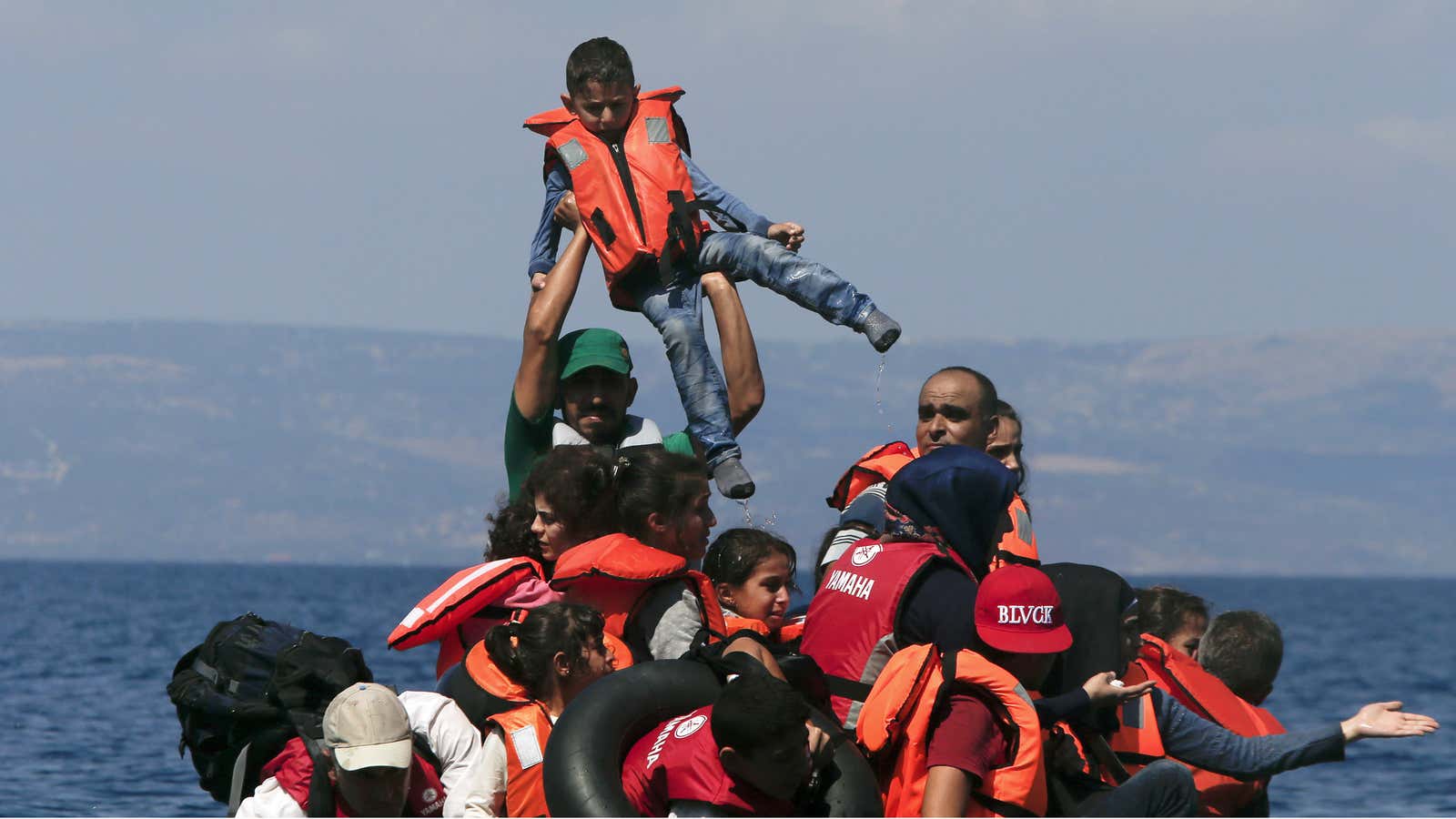For countries, one of the thorniest aspects of Europe’s refugee crisis—in which a record-breaking 500,000 migrants have crossed into the EU this year—is determining whether those seeking asylum have a legitimate claim that they would face danger or persecution in their home countries. It’s easy enough to see that security is scarce in war-torn Syria, but many Balkan states are in a gray area, considered safe by some, and not safe by others.
Now, EU leaders are trying to draft a common list of “safe countries,” to better cope with the refugee crisis. But finding a consensus on what countries are considered safe—free of human rights abuses and armed conflict—is easier said than done. Currently, 13 EU member states have their own safe countries list, including France, Germany, the UK, and most recently Hungary, but those lists vary widely.
The EU parliament wants to establish a common list of safe countries, including Albania, Bosnia and Herzegovina, the former Yugoslav Republic of Macedonia, Kosovo, Montenegro, Serbia, and Turkey. That proposal has been heavily criticized, however, because it would allow officials to quickly deport people from these countries (unlike those from Syria and other unsafe countries, who usually are allowed to stay while their applications are processed).
Here’s where some of these countries stand now:
Albania
Nine member states currently list Albania as a “country considered safe,” but four others, including Germany, Ireland, Malta, and Slovakia don’t. Albania is an EU candidate country on its way to full EU membership, but thousands are leaving the country. Germany alone has received 30,000 requests for asylum from Albanians in the first eight months of 2015, the BBC reports, but the vast majority will be rejected as they’re considered economic migrants. This is despite the fact some migrants, such as the Roma community, are minorities escaping prejudice and social exclusion.
Kosovo
Around 70,000 Kosovars sought asylum in the EU in 2015, Reuters reports. Of those, 14,000 have been deported since January, a number that could increase if Kosovo is added to an EU-wide safe list. Seven member states already designate Kosovo as a safe country, including Belgium, Denmark, the UK, and Hungary. Kosovo is not on seven countries’ safe list, including those of Germany and Ireland. France withdrew Kosovo from its safe list in 2014, because “its institutions are still largely dependent on the support of international organizations and missions.”
Serbia
Record number of migrants have been crossing through Serbia, another EU candidate country, in their quest to reach western Europe. A recent crackdown by Hungarian officials has left thousands stranded at the Serbian-Hungarian border, including many Serbian citizens. Serbia is listed as a safe country by 10 member states. Hungary recently announced it will reject and turn back all refugees trying to reach western Europe through its border with Serbia.
